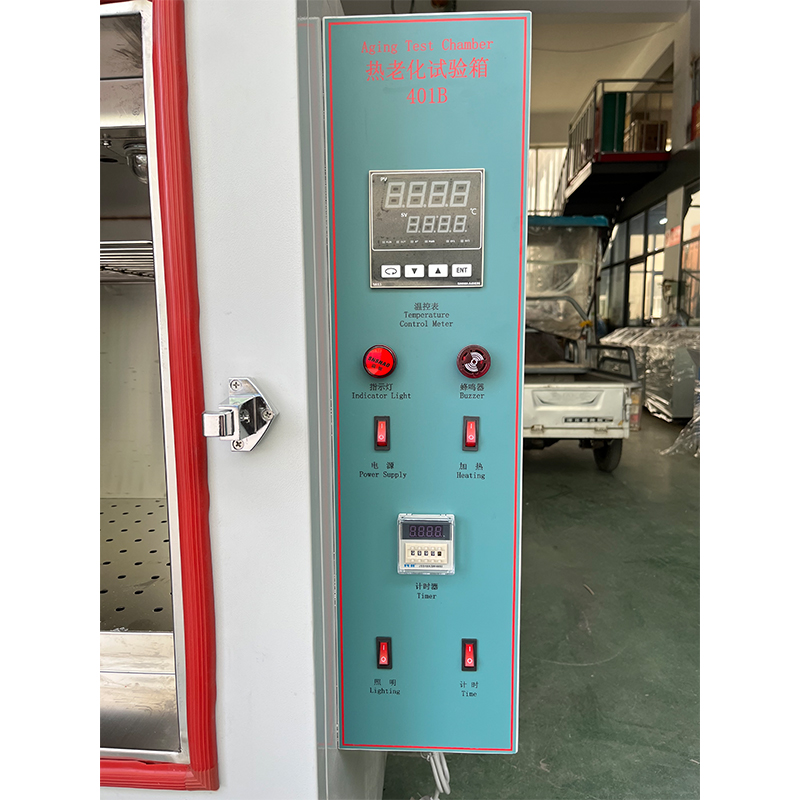tensile test machine factory
The Importance of Tensile Test Machines in Material Science
In the field of material science and engineering, understanding the mechanical properties of materials is paramount. Among the various tests conducted to evaluate these properties, the tensile test stands out as one of the most critical. Tensile test machines, often referred to as universal testing machines, play an essential role in this process. These machines are specifically designed to apply a controlled tension to a sample until it deforms or fractures, providing valuable data on the material's strength, ductility, and other mechanical properties.
Design and Functionality
A typical tensile test machine consists of several key components a load frame, a testing chamber, grips to hold the specimen in place, and a series of sensors and gauges to record data. The load frame is usually constructed from robust materials to withstand the stress placed upon it during testing. The design may vary depending on the intended application—ranging from laboratory-scale machines for research to industrial machines for quality control in manufacturing settings.
The operation of a tensile test machine is straightforward. The specimen, which can be made of metals, polymers, or composites, is securely placed in the grips. As the test begins, the machine gradually applies a tensile force to the material. The resulting elongation and load are recorded, allowing for a stress-strain curve to be generated. This curve is crucial, as it provides insight into the material's yield strength, ultimate tensile strength, and elongation at fracture.
Applications in Various Industries
Tensile test machines are utilized across numerous industries, including automotive, aerospace, construction, and plastics. In the automotive sector, for example, manufacturers rely on these machines to ensure that the metals used in vehicle components can withstand the forces they will encounter on the road. Aerospace engineers conduct tensile tests on lightweight composite materials to ensure safety and performance in flight applications.
In construction, tensile testing is essential for materials like steel cables, which are used in bridges and high-rise buildings. Understanding the tensile strength and ductility of these materials helps engineers design structures that can endure extreme loads. The plastics industry uses tensile tests to gauge the performance of polymers and ensure that they meet the required specifications for packaging, automotive parts, and consumer goods.
tensile test machine factory

Quality Control and Compliance
One of the significant roles of tensile test machines is in quality control. Manufacturers must comply with various industry standards and regulations, which often mandate specific mechanical properties for the materials used in their products. By conducting regular tensile tests, companies can ensure that their materials meet these standards, minimizing the risks of product failure and enhancing customer safety.
Moreover, tensile testing data can be invaluable during the research and development phase of new materials. Scientists and engineers can modify material compositions or manufacturing processes based on the results of tensile tests, leading to improved performance and innovation in new product designs.
Advancements in Testing Technology
With advancements in technology, modern tensile test machines are becoming increasingly sophisticated. Many are now equipped with computer-controlled systems that allow for precise testing conditions and automated data collection. This not only enhances accuracy but also speeds up the testing process, enabling manufacturers to test larger quantities of materials in shorter time frames.
In addition, the integration of digital interfaces allows for real-time monitoring and data analysis, making it easier to interpret results and comply with international testing standards. As materials continue to evolve, the demand for advanced tensile testing equipment will only increase, prompting further innovation in the field of testing technology.
Conclusion
In conclusion, tensile test machines are essential tools in the world of material science. They provide crucial data that help engineers and scientists understand the mechanical properties of materials, ensuring safety and reliability across various industries. As technology advances, these machines will continue to evolve, enhancing our ability to test and analyze materials in innovative ways. The importance of tensile testing in ensuring quality and performance cannot be overstated, making it a cornerstone of material evaluation and development.
-
Why the Conductor Resistance Constant Temperature Measurement Machine Redefines Precision
NewsJun.20,2025
-
Reliable Testing Starts Here: Why the High Insulation Resistance Measuring Instrument Is a Must-Have
NewsJun.20,2025
-
Flexible Cable Flexing Test Equipment: The Precision Standard for Cable Durability and Performance Testing
NewsJun.20,2025
-
Digital Measurement Projector: Precision Visualization for Modern Manufacturing
NewsJun.20,2025
-
Computer Control Electronic Tensile Tester: Precision and Power for the Modern Metal Industry
NewsJun.20,2025
-
Cable Spark Tester: Your Ultimate Insulation Assurance for Wire and Cable Testing
NewsJun.20,2025
 Copyright © 2025 Hebei Fangyuan Instrument & Equipment Co.,Ltd. All Rights Reserved. Sitemap | Privacy Policy
Copyright © 2025 Hebei Fangyuan Instrument & Equipment Co.,Ltd. All Rights Reserved. Sitemap | Privacy Policy
